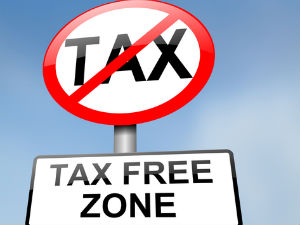Government Bereft of Taxation

The Consequences of the Abolition of All Taxation upon a Nation’s Finances
What if government could no longer expropriate funds, but had to borrow them with a capital charge? Does this become a beneficial undertaking or a detrimental one for a nation?
Imagine government no longer able to confiscate funds, but daily facing its scrutinising and petulant bankers: the people. So dependent upon the anonymous mass, government would immediately cease to operate in any other’s interest save those of the nation. It would no longer be able to accommodate the preferences and desires of a favoured few over the collective interest.
With the design and implementation of a national system of full Borrowing for all public endeavours, operating similar to any pension plan, it is the people who would become the ultimate arbiter of what is necessary; Not a representative system repeatedly prone to the corruption, deceit, indifference, duplicity, and arrogance of those entrusted with public office and their bureaucratic associates. The nation’s leaders would have to literally face the nation each time the government attempted to raise capital for a project properly deemed worthy. Violate the public trust or offend the majority, the government, without funds to operate, would immediately discover itself impotent and devoid of all practical authority. How preferable a state of affairs this would be to that which the majority must endure presently!
If the government substitutes Borrowing for Taxation, what would happen to the costs and endeavors of the government and the nation?
Let us say that government spending at the local, provincial or state, and federal levels totals $300 billion in an economy of $1 trillion. Of this figure, suppose that $20 billion of expenditures is allocated to departments at each level involved in the collection of taxes: Inland Revenue, Customs and Excise, agencies responsible for the collection of federal and provincial sales taxes and the collection of local taxes, those devising tax laws, those overseeing tax law. All would witness the purpose of their existence vanish.
Government expenditures should then drop to $280 Billion from $300 billion.
Without Taxation government would no longer operate upon the principle of expenditure. Departments of Housing, Highways and Transportation, Education, Employment, needlessly operating in duplicate or triplicate, would be merged into one or undergo enormous truncations of staff and budgets.
If a department endured such scrutiny, undoubtedly it would emerge a lean and inspired fraction of its former size. Corruption, malfeasance, excessive regulation, and indiscretion with all its inherent costs would dissolve or decline quickly in number and extent. All those politically useful, but practically dubious and barren government programs would cease to function.
Combined government spending so fiercely examined and pared should further decline by the most conservative of estimates from $280 Billion to $225 billion dollars with little reduction in services, great reductions in costs of department operations, the elimination of wasteful and costly programs, and great gains in productivity and innovation.
Additional reductions in expenditures may be culled from changes in the provision of services. The public may no longer demand wholesale services without regard to their use or consumption, and cost. In garbage collection the state could impose fees upon those persons and businesses inclined to excessive use or to encourage the re-cycling of refuse by the general population. Similar fees could be applied to health services and education.
With such fees to regulate and penalize elevated usage or consumption, the state could conceivably reduce spending by a further $40 billion in exchange for charges of perhaps $15 billion applied in crucial areas. Thus, expenditures should decline to $200 billion, of which $15 billion would be directly recompensed.
With small reductions in services, but radical changes in the allocation of those services, government involvement in the economy should decline from a wasteful $300 billion to a lean $200 billion or less, offering savings of $100 billion per annum to the nation.
The costs associated with introducing and operating a system of government Borrowing, in comparison with present efforts to collect taxes, would be negligible. Huge sums of money are currently raised throughout the world with little exertion by small groups of persons equipped with computers linked to the capital markets.
Resultant National Assets and Liabilities
Leaving aside the service charges, the nation should in one year acquire an enormous asset yielding $300 billion — the amount no longer taxed. The nation would then incur a liability as its agent, the government, expended funds on public enterprise. The liability would be the borrowed sum of $200 billion.
I shall assume for simplicity that all money is borrowed by government on the first day of the financial year and at an interest rate of 10%. All interest is earned by the public on the first day of the financial year subsequent. As public enterprise will elicit estimable returns eclipsing costs, a return in excess of the interest charge should be secured. I will therefore set the rate of return upon public investment at an arbitrary average of 13%.
Accruing Liability of the Nation
Borrowed Day 1 – $200 billion
Interest paid 10% Day 1 next year – $20 billion
Accruing Asset of the Nation
Received Day 1- $300 billion
Interest received 10% Day 1 next year – $20 billion
Returns on Public Inv. 13% – $26 Billion
| Assets | Liabilities | Wealth | |
| Year 1 | $300B | $200B | $100B |
| Year 2 | $346B | $220B | $120B |
| Year 3 | $395B | $242B | $153B |
| Year 4 | $448B | $266B | $182B |
Looking at the interest component, the wealth of the nation is unaffected by the addition of this sum to both sides of the imperfect balance sheet. It would not matter if the interest charge were 20% or 50% because it elevates each side by an equivalent amount
Therefore, I can only conclude that there is no benefit whatsoever to a nation utilizing Taxation if the stipulation that all bondholders and interest recipients be resident nationals be adhered to. I do hope that all grasp the gravity and implications of this astounding fact. Even if none were resident, the benefit of Taxation, that is the interest paid to foreign bondholders, assuming external markets for those dollars, would ever amount to a fraction, large or small, of the returns upon public endeavors, in this case $26 billion vs. $20 billion in year 1.
If, with the abolition of taxation, the increases in productivity and the growth in prosperity and industry for citizens and companies were calculated and included, the wealth of the nation would surge steeply. The return of wealth, assets, able individuals, and productive corporations from formerly lighter climates of taxation, the eradication of all constraints upon, impediments to, and distortions of investment, industry, and labour, either domestic and foreign, the elimination of favoured relationships and monopolies that shamelessly elevate prices and enhance profits for the privileged at the expense of the common, liberation from the expensive apparatus of tax preparation and advice, the elimination of onerous and unnecessary regulation, an end to surcharges and constraints upon consumption, an influx of foreign investors and investment, the end of disparities and inequities in payment of tax, and the erasure of many other unnecessary practices sired by this corrosive instrument should yield a collective and immense largesse.
It is conservatively reckoned that the abolition of taxation, by diminishing costs and spurring profits, would enlarge the assets of the nation by at least a further $100 billion per year with asset returns compounding at some rate, say 5%.
Thus, the figures of compounding wealth of Year 1 would now appear:
| Assets | Liabilities | Wealth | |
| Year 1 | $400B | $200B | $200B |
| Year 2 | $446B | $220B | $226B |
| Year 3 | $500B | $242B | $258B |
| Year 4 | $558B | $266B | $292B |
If one adds in the assets, liabilities, and wealth generated by the 2nd, 3rd, 4th years, then the figures should appear so:
| Cumulative Assets | Cumulative Liabilities | Wealth | |
| Year 1 | $400B | $200B | $200B |
| Year 2 | $880B | $430B | $450B |
| Year 3 | $1443B | $694B | $749B |
| Year 4 | $2076B | $986B | $1090B |
One could easily attribute the figures to a nation like Canada. Its people should see their personal wealth augmented by a staggering $1 trillion dollars in 4 years; In the US, perhaps a ten fold increase in wealth to $10 trillion in the same span of time.
Looking at these figures, the cost of taxation over a 4 year period is therefore conservatively estimated at $2 trillion dollars and its benefit at a fraction or $1 trillion.
Who would any person rather be: a fellow that has sacrificed $2 trillion in assets escaping $1 trillion in liabilities, or one that has received $2 trillion in assets for hazarding $1 trillion?



